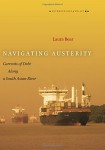[South] Videos
For more info on debt review visit http://www.easydebtreview.co.za
Today’s question: What is Debt Review?
Debt review is a relieve or remedy provided by the National Credit Act for over indebted consumers.
When a consumer’s combined monthly debt installments are more than what he earns, a consumer can be classified as being over-indebted.
Debt Review offers consumers the opportunity to get their monthly installments reduced and the debt terms extended to such an extent that it provides breathing room in the consumer’s budget. From there, a registered debt counsellor can assist the consumer to construct a reasonable repayment plan that will see the consumer become debt free.
The Debt Review process also provides protection of assets under the National Credit Act. In the past, consumers could easily lose assets such as homes, vehicles, etc when they fall in arrears. Debt Review provides a solution to protect those assets and repay your debt without having to worry about credit providers harassing you or taking legal action.
Contact us today and we will guide you to a debt free future.
Tel: 076 514 3756
Email: info [@] easydebtreview.co.za
Navigating Austerity addresses a key policy question of our era: what happens to society and the environment when austerity dominates political and economic life? To get to the heart of this issue, Laura Bear tells the stories of boatmen, shipyard workers, hydrographers, port bureaucrats and river pilots on the Hooghly River, a tributary of the Ganges that flows into the Bay of Bengal and Indian Ocean. Through their accounts, Bear traces the hidden currents of state debt crises and their often devastating effects.
Taking the reader on a voyage along the river, Bear reveals how bureaucrats, entrepreneurs and workers navigate austerity policies. Their attempts to reverse the decline of ruined public infrastructures, environments and urban spaces lead Bear to argue for a radical rethinking of economics according to a social calculus. This is a critical measure derived from the ethical concerns of people affected by national policies. It places issues of redistribution and inequality at the fore of public and environmental plans. Concluding with proposals for restoring more just long term social obligations, Bear suggests new practices of state financing and ways to democratize fiscal policy. Her aim is to transform sovereign debt from a financial problem into a widely debated ethical and political issue. Navigating Austerity contributes to policy studies as well as to the understanding of today’s global injustices. It also develops new theories about the significance of state debt, speculation and time for contemporary capitalism. Sited on a single body of water flowing with rhythms of circulation, renewal and transformation, this ambitious and accessible book will be of interest to specialists and general readers.


